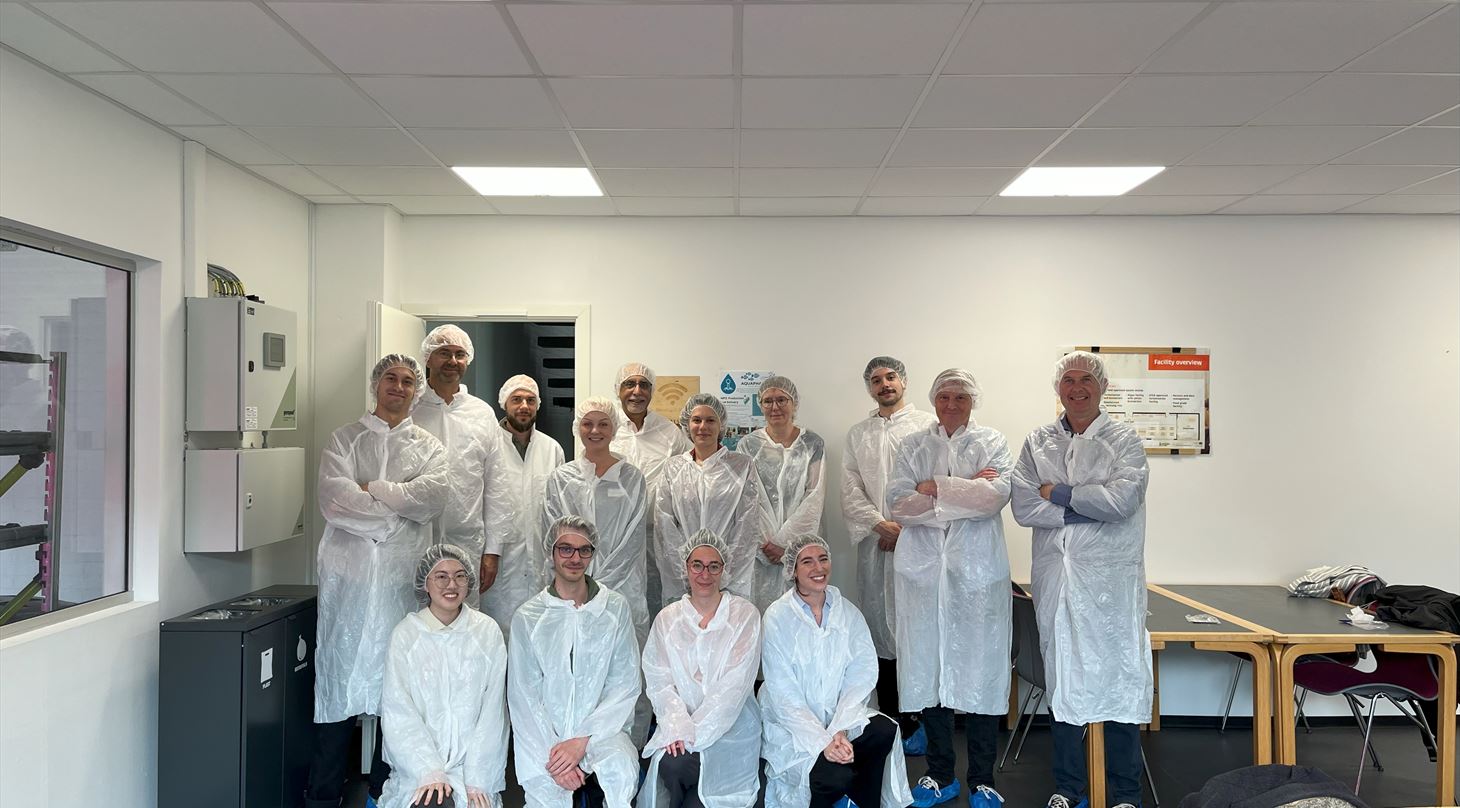.jpg)
AQUAPHAGE: Sustainable, Antibiotic-Free Disease Prevention in Aquaculture
Project period: June 1st 2023 to November 30th 2026
Funding program: Innovation Fund Denmark
Overall the project has received 13.5 mio. DKK funding where DTI’s share is 2 mio.
Tackling the environmental and health challenges of global aquaculture
Aquaculture is among the world's fastest-growing food sectors and is vital for global protein supply. However, intensive fish farming faces major sustainability and animal health challenges due to disease outbreaks, high antibiotic use, and negative environmental impacts such as the spread of antimicrobial resistance.
The AQUAPHAGE project focuses on developing and demonstrating pioneering phage-based solutions to prevent and control bacterial diseases in rainbow trout aquaculture, supporting a green transition for the industry. Flavobacterium psychrophilum is one of the most significant pathogens in global trout production, responsible for substantial animal loss, frequent antibiotic treatments, and decreased production efficiency.
This project aims to prevent and control Flavobacterium psychrophilum infections, reducing disease outbreaks, antibiotic use, and environmental impact.
DTI is leading work package 3 (WP3). We are responsible for the optimization and upscaling of the bacteriophage production, purification, and formulation process.
Goals and ambitions of the project:
- Bring together leading academic and industry partners to develop and test sustainable bacteriophage-based (“phage”) products for rainbow trout aquaculture.
- Target key production stages (eggs, larvae, juveniles) with prototype solutions: direct water treatments, phage-coated feed, and biofilters.
- Seek to improve fish welfare, feed efficiency, and support a greener, more sustainable aquaculture industry.
The project consists of six work packages (WP). The main objective for each is described below:
- WP1: Expanding Phage Collections - Expand existing collections of F. psychrophilum-specific bacteriophages via isolation and targeted evolution. The best candidates based on lytic potential, host range and stability will be selected for further testing in WP2 and WP3.
- WP2: Product Performance - Risk assessment and testing performance of a selection of prototype products at different scales.
- WP3: Production and Delivery - Optimize and upscale the production technology and delivery methods of the products using liquid concentrates and coating of surfaces using the best candidate products from WP2.
- WP4: Product approval, cost-benefit analysis of upscaled phage production, market potential and environmental effects.
- WP5: Dissemination - Ensure effective external communication, dissemination and optimal knowledge transfer of project results, leading to engagement of stakeholders and effective exploitation of its outputs.
- WP6: Project management - make sure the results and advice from individual WPs are effectively communicated and implemented in the work with other WPs by establishing a strong communication structure
Project partners:
- University of Copenhagen – Department of Biology
- Denmark’s Technological University – Department of Aqua
- University of Copenhagen - Department of Food and Resource Economics
- NexaBiome
- KSK Aqua (Dania Plast A/S)
- DANAQUA
- Dansk Akvakultur
- Aller Aqua
- Carus Animal Health.